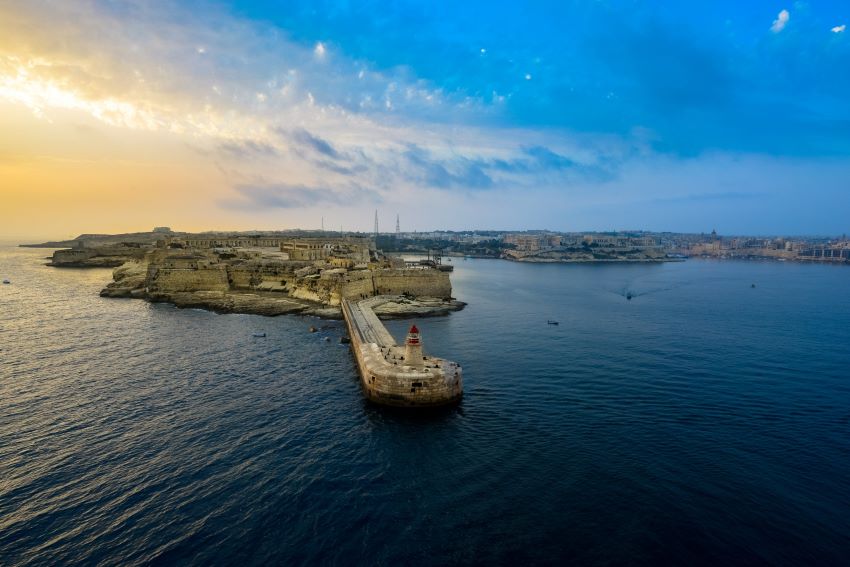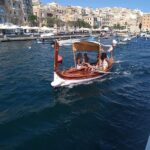Malta: A Mediterranean Crossroads Shaped by Trade and Strategy
Positioned at the heart of the Mediterranean, Malta has long held immense importance as a strategic stopover for major east-west and north-south trade routes. For centuries, empires viewed the island not merely as a picturesque escape but as an essential node in controlling access to Europe, North Africa, and the broader Mediterranean. With a history marked by this strategic value, Malta became a vital asset for those seeking influence over one of the world’s most important maritime corridors. Learn more about why Malta’s strategic role was crucial in the .
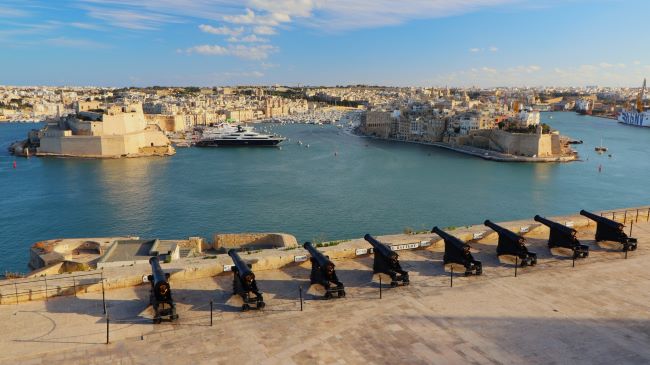
The Power of Location: Connecting Routes Across Continents
Malta’s geographic position made it indispensable for empires looking to dominate Mediterranean trade. Ancient Phoenician merchants, for instance, established early trading posts on the island around 800 BCE, taking advantage of its location as they traded timber, glass, and textiles throughout the Mediterranean. Learn more about the Phoenician influence on Malta.
Later, the Romans built an extensive infrastructure on Malta in 218 BCE to integrate it further into their empire, using the island as a refueling point for ships traveling between Sicily and North Africa. During the height of Venetian and Genoese influence in the 13th and 14th centuries, these trading powers relied on Malta to connect their expansive networks. Venetian ships transporting silks, spices, and ceramics from the East would anchor in Malta to resupply and trade with North African merchants, creating a marketplace where cultures and goods intersected.
The Genoese, renowned for their maritime prowess, also saw Malta as an asset that facilitated their control over Mediterranean shipping lanes. In the 17th century, even the Ottoman Empire recognized the island’s importance, seeking to capture it in 1565 to secure a base for their fleets and disrupt European trade routes. Malta was repeatedly fortified to reflect its vital role, with empires vying for control to harness its natural advantages and the power it offered over surrounding seas. Learn more about the Ottoman attempts to control Malta.
If Malta had not been there during these times, the dynamics of Mediterranean power could have been significantly different. The Ottomans may have succeeded in pushing further into Europe through Sicily, unimpeded by a strategic naval base in Malta. The Venetians and Genoese would have lost a critical stopover for resupplying their fleets, possibly diminishing their influence over Mediterranean trade. The absence of Malta as a fortified base could have also made it easier for piracy to flourish, with fewer secure harbors to deter raiders.
During the height of Venetian and Genoese influence in the 13th and 14th centuries, these trading powers relied on Malta to connect their expansive networks. Venetian ships transporting silks, spices, and ceramics from the East would anchor in Malta to resupply and trade with North African merchants, creating a marketplace where cultures and goods intersected. The Genoese, renowned for their maritime prowess, also saw Malta as an asset that facilitated their control over Mediterranean shipping lanes. In the 17th century, even the Ottoman Empire recognized the island’s importance, seeking to capture it in 1565 to secure a base for their fleets and disrupt European trade routes. Malta was repeatedly fortified to reflect its vital role, with empires vying for control to harness its natural advantages and the power it offered over surrounding seas. Explore more about the and their strategic significance.
If Malta had not been there during these times, the dynamics of Mediterranean power could have been significantly different. The Ottomans may have succeeded in pushing further into Europe through Sicily, unimpeded by a strategic naval base in Malta. The Venetians and Genoese would have lost a critical stopover for resupplying their fleets, possibly diminishing their influence over Mediterranean trade. The absence of Malta as a fortified base could have also made it easier for piracy to flourish, with fewer secure harbors to deter raiders.
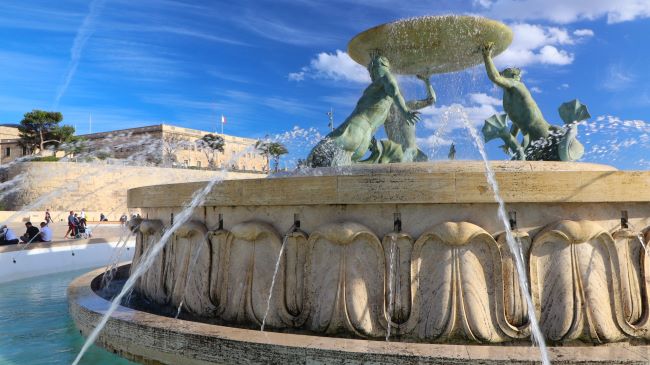
Trade and the Economy: Malta as a Mediterranean Marketplace
Malta’s dynamic economy, rooted in centuries of strategic importance, continues to thrive as a Mediterranean hub, excelling in diverse sectors such as information technology, manufacturing, tourism, financial services, and renewable energy. Historically, the island’s exceptional natural harbors, such as the Grand Harbour, and its strategic geographical location made it a focal point for trade and commerce. Deep-water ports provided secure anchorage for merchant fleets, enabling the exchange of goods like olive oil, grain, and textiles. The Maltese shipbuilding industry, known for its skilled craftsmen, was central to maintaining maritime trade networks. The island’s unique limestone geology shaped its architectural identity and supported the development of critical infrastructure.
In the modern era, Malta has emerged as a leading player in information technology and digital innovation. The IT sector thrives due to Malta’s strong governance, forward-thinking regulatory frameworks, and investment in eGovernment, which has earned international recognition. Its pioneering role in blockchain technology, gaming, and fintech has positioned the nation as a global hub for digital services. The manufacturing sector complements these technological advancements, with Malta producing pharmaceuticals, precision electronics, and other high-value goods that reinforce its industrial base.
Tourism remains a cornerstone of Malta’s economy, drawing millions of visitors annually to experience its rich cultural heritage, breathtaking Mediterranean landscapes, and vibrant festivals. The island also excels in financial services, offering a robust regulatory framework that attracts international investors and companies. Additionally, Malta is actively advancing its renewable energy capabilities, including solar and wind power initiatives, to meet sustainability goals and reduce dependence on fossil fuels.
Healthcare and education are other pillars of Malta’s modern economy. Its healthcare system is consistently ranked among the best in Europe, attracting medical tourists alongside providing high-quality care to its citizens. In education, Malta serves as a growing center for international students, offering English-language programs and fostering academic exchange.
Historically, Malta’s role as a cultural and economic crossroads enriched it with influences from Italian, Arabic, and North African merchants. Where the three cities are one of the many gems in Malta. Its bustling marketplaces became melting pots of ideas, goods, and traditions. During the British occupation beginning in 1800, Malta’s strategic location gained renewed significance. The British utilized the island as a key naval base, safeguarding trade routes to India and other colonies. This integration into global networks spurred local economic growth, employing Maltese workers in trades like masonry, carpentry, and shipbuilding.
Without British control during the 19th and 20th centuries, the British Empire’s influence in the Mediterranean would have been significantly diminished. Malta’s absence as a naval stronghold could have jeopardized the Empire’s ability to secure trade routes and may have altered the outcome of critical WWII campaigns, such as the North African front.
Today, Malta’s success is a testament to its ability to blend tradition with modernity. Its achievements in governance, economic diversification, and sustainability, coupled with its rich cultural heritage, solidify its position as a Mediterranean leader and a global innovator.
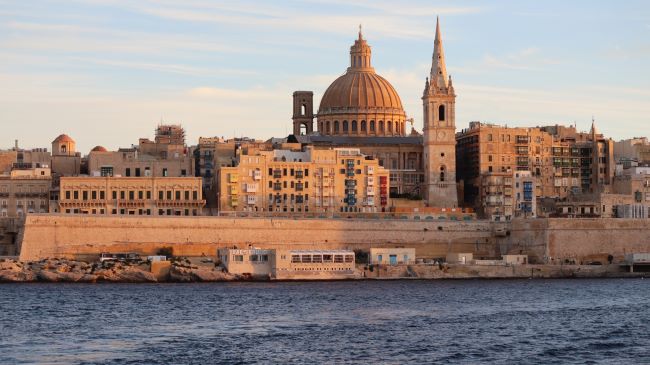
Malta’s Role in Shaping Mediterranean Influence
From its harbors, Malta’s influence on Mediterranean trade and politics was significant. The island offered a gateway to Europe and North Africa, which allowed empires to project power and protect shipping routes critical to their wealth and security. When the British took control of Malta in 1800, they leveraged the island’s central location to disrupt Axis supply lines during WWII (1939-1945). By maintaining control over Malta, the British secured a base that allowed their submarines to intercept supplies destined for German and Italian forces in North Africa, significantly contributing to the Allied victory.
Malta’s strategic significance was profoundly evident during the reign of the Knights of St. John, who transformed the island into a formidable bastion against Ottoman expansion. Following their expulsion from Rhodes in 1522, the knights established their headquarters in Malta, fortifying the island and constructing the renowned Valetta. Their resolute defense during the Great Siege of 1565 thwarted Ottoman ambitions, preserving Christian dominance in the Mediterranean. By maintaining control over Malta, European powers secured a crucial gateway to the Mediterranean, enabling them to protect vital trade routes and project power across the region.
Without Malta as a defensive bastion during the Great Siege of 1565, the Ottomans might have successfully expanded their influence further into the Mediterranean, potentially altering the balance of power between Christian Europe and the Ottoman Empire. The lack of a fortified Malta would have left a gap in the defensive chain, possibly enabling more frequent and successful incursions by Ottoman fleets into European waters.
The legacies of Malta’s commercial and strategic roles are evident even today. With its unique position and history as a Mediterranean crossroads, Malta’s significance remains as a cultural and historical link between continents, a place where commerce and strategy have always converged.
The Maltese People: Punching Above Their Weight
The Maltese people have always been characterized by their resilience, adaptability, and pride. Despite the island’s small size, Maltese citizens have consistently demonstrated their ability to punch above their weight, both in times of conflict and peace. The tenacity of the Maltese was exemplified during the Great Siege of 1565 and again during World War II, when the islanders stood firm against overwhelming forces. Prominent figures like Roberta Metsola, the current President of the European Parliament, Dom Mintoff, a major political leader who helped shape modern Malta, and Edward de Bono, the world-renowned thinker who invented the concept of lateral thinking, highlight Malta’s tradition of outsized contributions. The collective spirit and cultural pride of the Maltese people continue to shape the island’s unique identity, making them proud to be Maltese and reinforcing their place on the global stage. The collective spirit and cultural pride of the Maltese people continue to shape the island’s unique identity, making them proud to be Maltese and reinforcing their place on the global stage.
Malta Today: A Unique Blend of Tourism, Economy, and IT
Today, Malta stands out as a fascinating destination that attracts tourists, investors, and digital entrepreneurs alike. Its rich history, ranging from megalithic temples to medieval fortresses, draws tourists eager to explore its cultural heritage. The vibrant nightlife, picturesque beaches, and unique Mediterranean charm have made Malta a top choice for European vacationers. Economically, Malta has successfully diversified beyond tourism; it has positioned itself as a hub for finance and information technology, attracting businesses with favorable regulations and incentives.
The rise of the iGaming industry, blockchain initiatives, and digital startups has transformed Malta into a modern, tech-forward economy. The island has also become a popular destination for digital nomads, thanks to its favorable climate, reliable internet infrastructure, and government initiatives to promote remote work. If you’re interested in remote work opportunities, check out Malta’s digital nomad guide and learn about remote work from Malta to see how Malta can be your next base of operations. This blend of ancient history and modern innovation makes Malta a compelling place not just to visit, but to do business and live, marking its continued significance in the Mediterranean.
Activities to Enjoy in Malta Today
Malta offers a wide array of activities for visitors and locals alike. For history enthusiasts, exploring the ancient megalithic temples of Ħaġar Qim and Mnajdra, as well as the stunning fortifications of Valletta, Mdina, and the Three Cities (Birgu, Senglea, and Bormla), provides a glimpse into the island’s rich past. Consider taking a self-guided tour to explore these fascinating sites at your own pace.
Water sports such as snorkeling, diving, kayaking, and sailing are popular, with crystal-clear waters that allow for remarkable underwater adventures, especially around the Blue Grotto and Comino’s Blue Lagoon. Adventure seekers can enjoy rock climbing, hiking, and mountain biking along the rugged Maltese coastline, which offers breathtaking views. Malta also boasts beautiful beaches where visitors can relax and enjoy the sun, perfect for family outings, couples seeking a romantic escape, or solo travelers wanting to unwind.
Food lovers can savor traditional Maltese cuisine at local markets and restaurants, and wine enthusiasts should not miss exploring Malta’s wine scene. For those looking for adventure over several days, try tackling Malta’s Big 5 hiking routes for an unforgettable experience.
Malta’s vibrant festivals, including the Malta International Fireworks Festival and the colorful village feasts, give visitors a taste of the island’s lively culture. Whether it’s history, adventure, or relaxation, Malta offers something unique for everyone. And if you are planning a trip, you might also wonder . And if you are planning a trip, you might also wonder .

